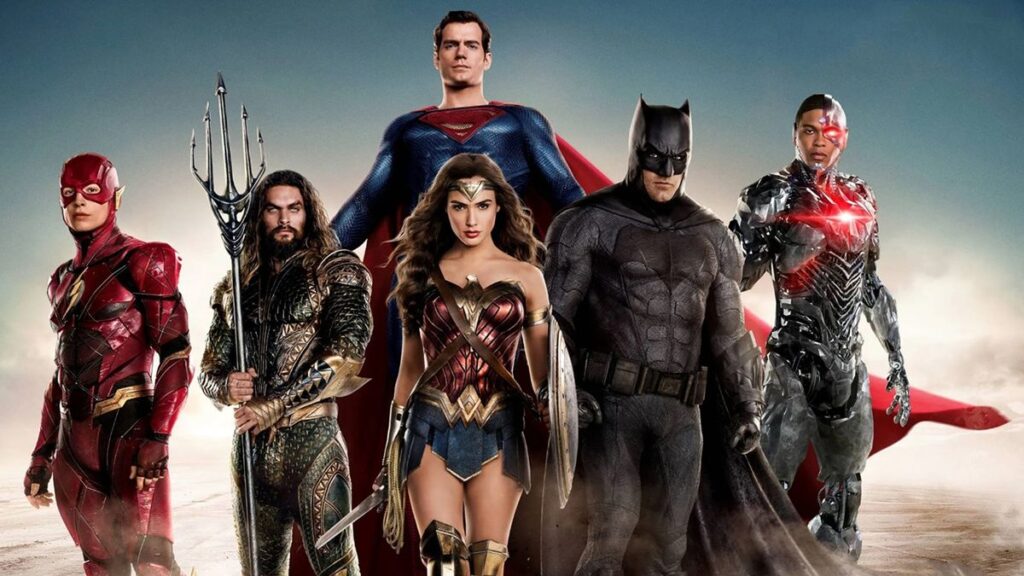
The DC Extended Universe (DCEU): A Tale of Missed Opportunities in Rise and Fall
The Ascension and Decline of the DCEU: An Account of Missed Chances
As the debris settles in the aftermath of the DC Extended Universe’s (DCEU) tumultuous journey, contemplation arises regarding the unfulfilled potential. The cinematic landscape was poised for a superhero renaissance, yet the DCEU consistently fumbled golden opportunities. From the ruins of mediocrity emerged a series of films that perpetually lingered in the shadows of its more successful Marvel counterpart.
Zack Snyder, the purported visionary behind the DCEU, showcased mastery in visual grandeur. However, his shortcomings in crafting profound characters and engaging storylines became the franchise’s Achilles heel. With each installment, Snyder’s preference for style over substance became increasingly evident, leaving audiences craving more than flashy CGI and slow-motion fight sequences.
Commencing with “Man of Steel,” touted as the DCEU catalyst, Snyder’s Superman emerged as a brooding alien lacking the charisma found in comic book iterations. The charm and relatability integral to the character were replaced by a perpetually uncertain Superman, a departure from the beacon of hope depicted in the comics.
“Batman v Superman: Dawn of Justice” followed, a film so convoluted and self-indulgent that even fervent fans struggled to identify redeeming qualities. Snyder’s attempt to weave together the Dark Knight and the Man of Steel resulted in a narrative quagmire, with Batman reduced to little more than a Gotham City street thug.
“Squad Squad” continued the trend, promising an edgy take on the superhero genre but delivering a chaotic mishmash of tone, style, and characters that left audiences bewildered. While Margot Robbie’s Harley Quinn stole the spotlight, her manic energy couldn’t salvage the wreckage.
“Wonder Woman” briefly revived the franchise, with Gal Gadot’s portrayal of the Amazonian warrior princess shining brightly. However, subsequent sequels failed to maintain the momentum, a fate shared by “Shazam!” and its follow-up.
The highly anticipated “Justice League,” touted as Snyder’s magnum opus, featured a disjointed narrative and underdeveloped characters, leaving fans yearning for the camaraderie effortlessly exuded by Marvel’s Avengers. The less said about the CGI disaster that was the villain Steppenwolf, the better.
“Aquaman” and its sequel, “The Lost Kingdom,” treaded water in the sea of mediocrity. Jason Momoa’s charisma could only carry the film so far, and a lack of coherent narrative and well-rounded characters continued to plague the DCEU.
“The Flash” momentarily ignited hope in the desolate DCEU landscape, with filmmaker James Gunn even hailing it as one of the best superhero films ever. However, it couldn’t evade the collective disappointment enveloping the DCEU. Despite providing decent entertainment, it fell short of being the remedy the cinematic universe desperately needed.
By the time “The Flash” hit theaters, the DCEU had already lost all goodwill. The scars of past missteps, from the murky storytelling in “Batman v Superman” to the muddled mess of “Justice League,” ran too deep. Audiences were jaded by broken promises.
In the end, the DCEU will be remembered not for its occasional triumphs but for the myriad of missed opportunities. Snyder’s fixation on grand visuals and dark themes overshadowed the heart and soul of beloved characters. Its legacy serves as a cautionary tale: style should complement substance, not replace it.
Farewell, DCEU. You had the potential to be a contender but chose to drown in the shallow waters of cinematic disappointment.